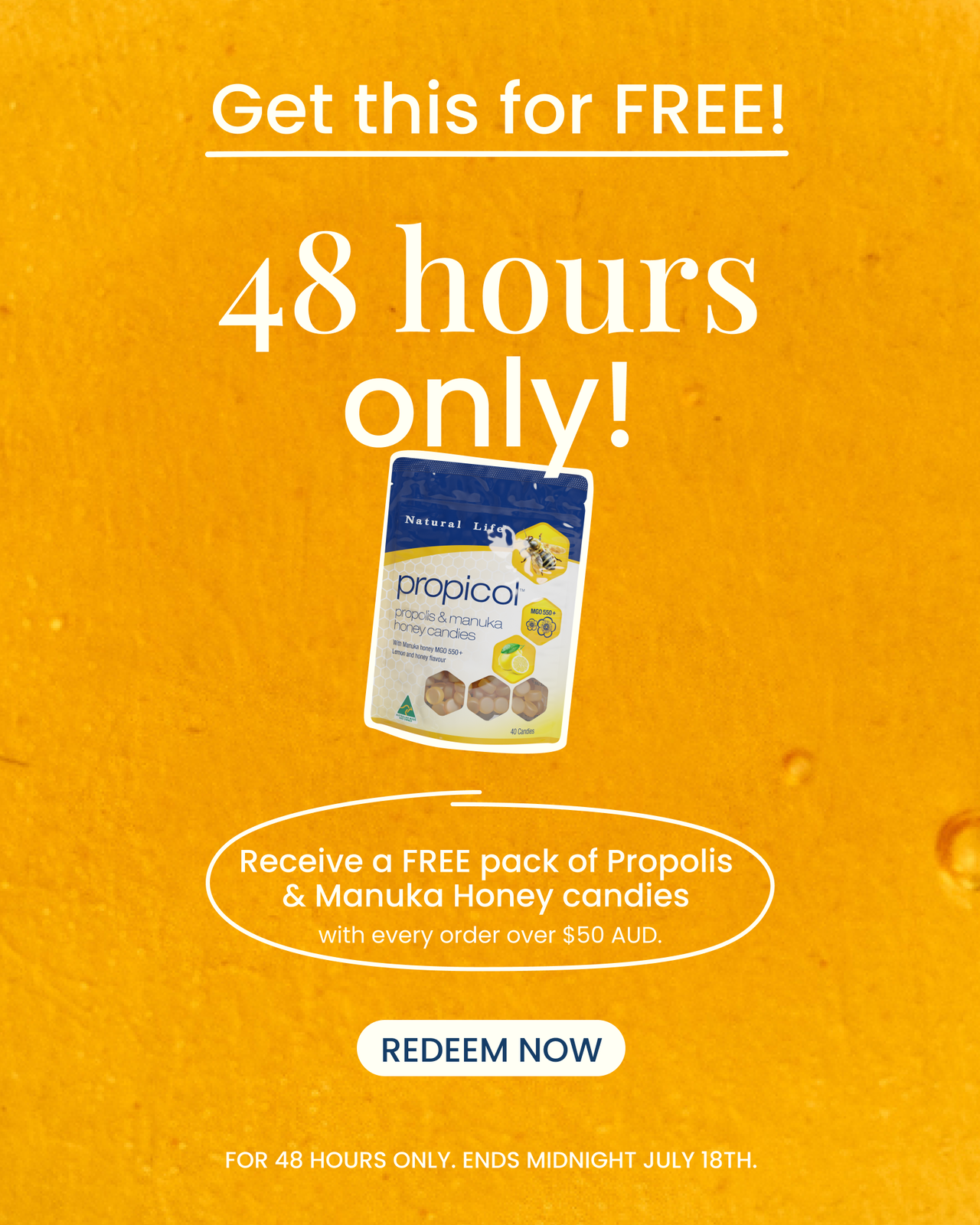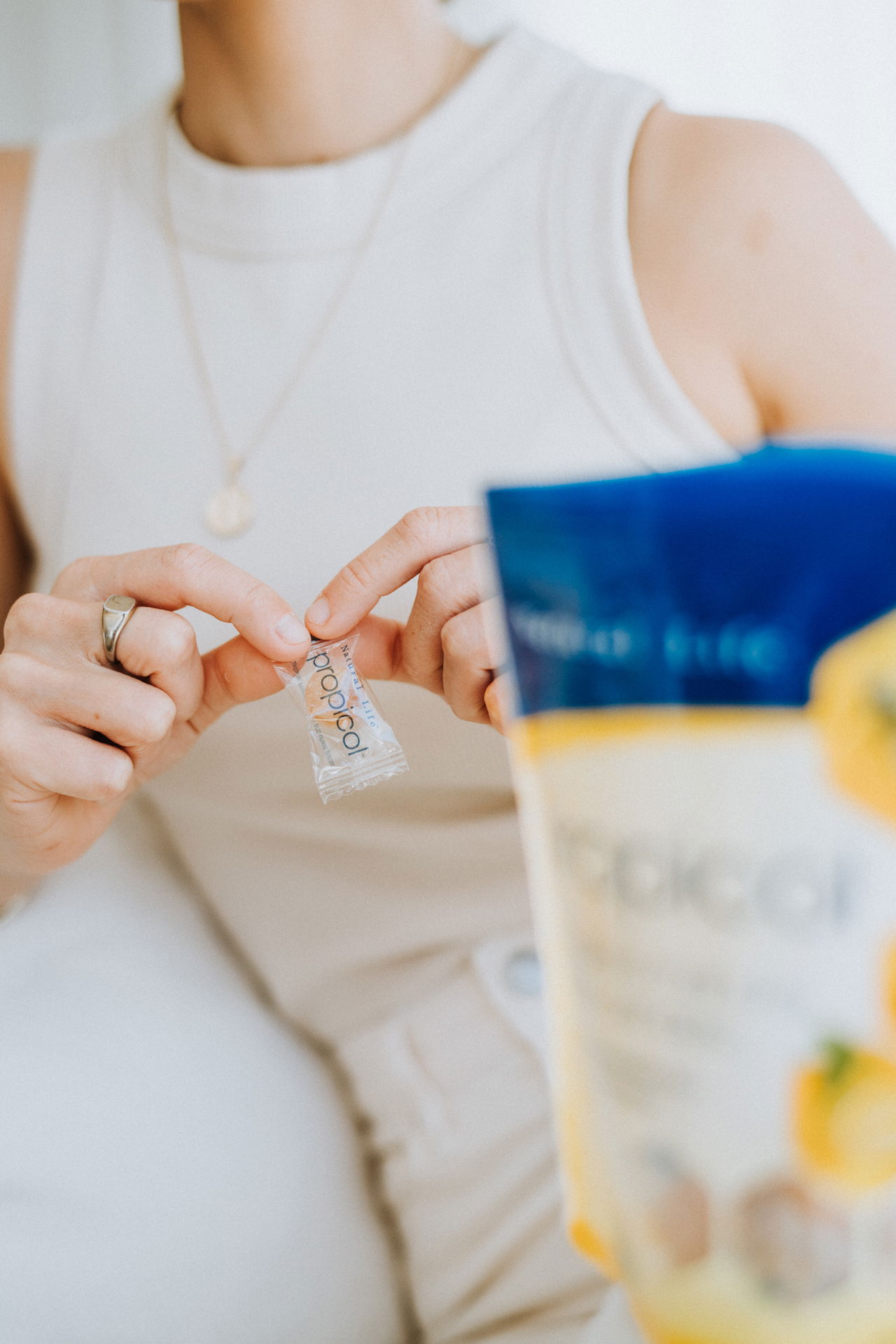For many Australians, allergy season means runny noses, itchy eyes, and constant sneezing. While antihistamines can provide relief, more people are turning to natural alternatives, and one name keeps popping up: bee pollen. But does it really help with allergies, or is it just another wellness trend?
Let’s explore what the science says about bee pollen and its potential role in managing allergic reactions — and whether it deserves a place in your health routine.
What Is Bee Pollen?
Bee pollen is made by honeybees when they collect flower pollen and mix it with nectar and enzymes. The result? Tiny golden granules packed with nutrients, protein, antioxidants and bioactive compounds.
Often called nature’s multivitamin, it contains everything from B vitamins and amino acids to anti-inflammatory flavonoids like quercetin.
So... can it help with hay fever?
That’s the million-dollar question. The theory goes like this: by introducing tiny amounts of local pollen into your system (via bee pollen), you may help your body build up a natural resistance - similar to how allergy shots work.
Some research even suggests bee pollen could help reduce histamine release in the body, which is the main culprit behind sneezing, swelling and inflammation.
What the science says
Early studies have shown that bee pollen may:
-
Block histamine production by stabilising mast cells (the immune cells that overreact to pollen)
-
Reduce inflammation that’s linked to allergic responses
-
Modulate immune response in a way that supports tolerance to environmental triggers
A 2021 review published in Nutrients found promising anti-allergic effects, but most of the research has been done in animals or lab settings, so while the results are encouraging, more human studies are still needed.
Important to know before you try
If you’re allergic to bee stings, honey, or pollen, bee pollen isn’t for you - it can cause serious reactions in sensitive individuals. Always start small (we’re talking a couple of granules) and build up slowly.
And if you have asthma or severe allergies? Chat to your healthcare provider first.
Does it have to be local?
While there’s no conclusive research proving local pollen works better, many believe that bee pollen from your own region may be more helpful, especially if you’re reacting to specific native plants.
Our Bee Pollen Collection is harvested in Western Australia and packed fresh to preserve all those natural compounds - no additives, no fillers.
How to use bee pollen for allergies
-
Start small: ¼ teaspoon daily for the first week, then gradually increase
-
Add to food: Sprinkle over smoothies, yogurt, oats or salads
-
Stay consistent: Daily use is key — especially leading into allergy season
It’s not an overnight fix, but some people find their symptoms ease after a few weeks of regular use.
So, should you try it?
If you’re looking for a natural way to support your body during allergy season, bee pollen could be worth exploring. It’s nutrient-dense, antioxidant-rich, and may help take the edge off seasonal flare-ups — especially when used alongside a healthy lifestyle.
Not all bee pollen is created equal. Ours is ethically harvested in Australia, with no heat or processing — so you get the full spectrum of benefits, straight from the hive.
Final thoughts
Bee pollen isn’t a magic bullet, but it’s a powerful wholefood with real potential. Whether you’re hoping to ease hay fever symptoms, support immune health or just add more natural nutrients to your diet — the hive might just have your back.
Ready to give it a go?

























